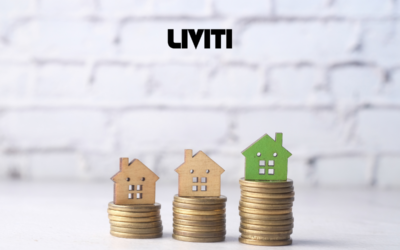Property investment is often seen as a game for the wealthy. The common belief is that you need a substantial amount of capital to get started.
But what if we told you that this is a myth? You don’t need a huge capital to start building wealth through investment property.
You can start with small deposits to purchase your investment property.

In this article, we will guide you through the basics of investment property for beginners.
By the end, you’ll see that investment property is a viable path to wealth building, regardless of your starting capital.
Understanding Investment Property Basics

Property investment is a long-term wealth-building strategy.
It involves buying properties, either residential or commercial, and generating income from them. This income can be generated from rental payments or from selling the property at a higher price than you bought it for.
But before you start investing in property, it’s crucial to understand the local real estate market. This includes knowing the average property prices, rental rates, and the demand for properties in your area.
Here are some key points to consider:
- Residential vs Commercial: Residential properties are often easier to manage and have lower entry costs. Commercial properties, on the other hand, can offer higher yields but come with higher risks and costs.
- Apartments as Investments: Apartments, especially in high-demand urban areas, can be a good investment. They often have lower purchase prices and high rental demand.
- Understanding the Market: Knowledge of the local real estate market is crucial. This includes understanding the factors that affect property prices and rental demand.
- Budgeting: Property investment involves costs beyond the purchase price. These include maintenance costs, property taxes, and insurance.
- Investment Strategies: There are various strategies for property investment, including buy-and-hold, flipping, and rental properties. Each has its own risks and rewards.
Starting Small: The Path to Building Wealth Through Investment Property

Contrary to popular belief, you don’t need a huge capital to start investing in property.
Starting small is a legitimate and often recommended strategy for beginners. Home Loan Experts agree it’s not only possible but it is actually crucial to start small in property investment because it allows beginners to gain experience, manage risks effectively, and gradually build wealth without needing substantial initial capital.
This could mean buying a small residential property, such as a studio apartment or a single-family home. Alternatively, you could invest in a share of a property through a real estate investment trust (REIT) or a real estate crowdfunding platform.
These options allow you to start building your property portfolio if you are thinking of how to start with small investments and gaining experience in property investment without the need for a large amount of capital.
As you gain experience and confidence, and as your financial situation improves, you can gradually move on to larger and more lucrative property investments.
Budgeting and Financial Planning for Property Investment Beginners

Budgeting and financial planning are crucial when starting in property investment.
You need to have a clear understanding of your current financial situation. This includes your income, expenses, savings, and any existing debts. Once you have a clear picture of your finances, you can determine how much you can afford to invest in property.
Remember, it’s not just the purchase price of the property you need to consider. There are also ongoing costs such as maintenance, insurance, and property taxes.
Having a solid financial plan will help you avoid overextending yourself and ensure that your property investment journey starts on a solid footing.
Leveraging Other People’s Money (OPM)

One of the key strategies in property investment is leveraging other people’s money (OPM). This involves using borrowed funds to finance your investment.
Banks and other financial institutions offer mortgages for this purpose. You provide a down payment, and the bank lends you the rest of the purchase price.
This strategy allows you to start investing in property even if you don’t have the full purchase price in cash. It also allows you to potentially earn returns on a larger investment than you could afford on your own.
However, leveraging OPM also comes with risks. If property values decline or if you can’t keep up with the mortgage payments, you could end up losing money.
Therefore, it’s important to carefully consider your financial situation and risk tolerance before deciding to leverage OPM.
Exploring Alternative Real Estate Investment Options

There are several ways to invest in real estate beyond traditional property ownership. These alternatives can be especially appealing to beginners with limited capital.
One option is to invest in real estate investment trusts (REITs). These are companies that own, operate, or finance income-generating real estate. By buying shares in a REIT, you can earn a share of the income without having to buy or manage properties yourself.
Another option is real estate crowdfunding platforms. These platforms pool money from multiple investors to fund real estate projects. This allows you to invest in real estate with a smaller amount of capital.
A third option is house hacking. This involves buying a multi-unit property, living in one unit, and renting out the others. This can be a way to start investing in real estate while also reducing your living expenses.
Real Estate Investment Trusts (REITs)
Real Estate Investment Trusts (REITs) offer a way to invest in real estate without the need to buy or manage properties. REITs are companies that own, operate or finance income-generating real estate.
By buying shares in a REIT, you can earn a share of the income produced by the real estate. This can be a good option for beginners who want to start investing in real estate but don’t have the capital to buy properties outright.
However, like all investments, REITs come with risks, so make sure to do your research before investing.
Crowdfunding Platforms

Crowdfunding platforms are another way to invest in real estate with a smaller amount of capital. These platforms pool money from multiple investors to fund real estate projects.
By investing through a crowdfunding platform, you can own a share of a property or real estate project without having to buy the whole thing yourself. This can make real estate investing more accessible to beginners.
However, as with any investment, there are risks involved. It’s important to do your due diligence and understand the terms of any crowdfunding investment before you commit your money.
House Hacking
House hacking is a strategy where you buy a multi-unit property, live in one unit, and rent out the others. This can be a way to start investing in real estate while also reducing your living expenses.
By renting out part of your property, you can generate income that helps cover your mortgage and other expenses. This can make property ownership more affordable, especially for beginners.
However, house hacking also comes with responsibilities. As a landlord, you’ll need to manage your rental units and deal with any issues that arise. It’s important to be prepared for these responsibilities before you start house hacking.
The Importance of Location and Research in Property Investment Success

In real estate investing, location is key. The value of a property can be greatly influenced by its proximity to amenities, schools, and transport.
Researching the local real estate market is crucial for finding investment opportunities. This includes understanding the demand for rentals in the area, the average rental rates, and the potential for property appreciation.
Due diligence is also important when considering specific properties. This involves researching the property’s condition, history, and potential for profitability.
Building Wealth With Your Real Estate Network

Building a network of experienced investors and real estate professionals can provide valuable insights. These individuals can share their experiences, offer advice, and potentially provide opportunities for partnerships.
Real estate seminars and webinars can be a source of education and networking opportunities. They can help you stay updated on market trends, learn new strategies, and connect with like-minded individuals.
Creating a Property Investment Plan

Creating a property investment plan is a crucial step in your journey. This plan should align with your financial goals and consider your budget, risk tolerance, and investment timeline.
Your plan should include strategies for finding investment properties, managing finances, and dealing with potential challenges. It should also outline your exit strategy for each investment property.
Remember, a well-crafted plan can serve as a roadmap, guiding your investment decisions. It can help you stay focused, make informed decisions, and track your progress.
A property investment plan is not just a document, but a strategic tool. It can help you navigate the complexities of property investment and increase your chances of success.
Read more: Top 10 Property Investment Myths You Should Avoid
Conclusion: Taking the First Step Towards Property Investment
Embarking on your property investment journey doesn’t require a huge capital. With the right knowledge, strategies, and a well-crafted plan, you can start building wealth through investment property.
Remember, the journey of a thousand miles begins with a single step. The first step in investment property is to educate yourself, network with experienced investors, and create a solid investment plan.
In conclusion, investing in property is a viable path to wealth creation. With patience, persistence, and continuous learning, you can dispel the myth and start building your property wealth.




